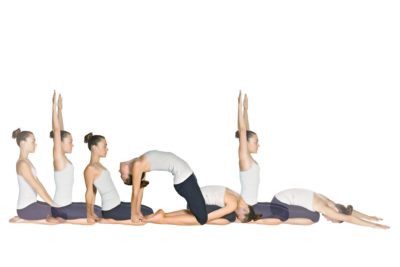
Lo yoga è un vera e propria terapia anti ipertensiva che enfatizza respirazione e rilassamento.
Yoga as Antihypertensive Lifestyle Therapy: A Systematic Review and Meta-analysis
Un’ulteriore ricerca rimarca gli aspetti positivi dello yoga. Questo nuovo studio, pubblicato su Mayo Clinic Proceedings e realizzato da ricercatori dell’Università del Connecticut, ha analizzato a sua volta 49 studi sullo yoga condotti tra il 1983 e il 2018.
Questi studi avevano esaminato varie caratteristiche dei partecipanti e le tecniche utilizzate.
I risultati mostrano che quelle tecniche yoga che enfatizzano il rilassamento mentale e la respirazione, insieme ad un livello sufficiente di movimento fisico, si rivelano particolarmente positive per la pressione sanguigna.
Secondo Yin Wu, l’autore dello studio, la riduzione della pressione arteriosa può arrivare fino a 11/6 mmHg, un livello uguale o superiore a quelli procurati dall’allenamento aerobico.
Lo stesso ricercatore sottolinea: “Laddove le pratiche yoga non enfatizzavano le tecniche di respirazione e il rilassamento mentale, le riduzioni della pressione sanguigna sono risultate di 6/3 mm Hg.”
Si tratterebbe di una vera e propria terapia anti ipertensiva alternativa quella dello yoga che enfatizza respirazione e rilassamento.
Lo stesso ricercatore, però, sottolinea anche che questa ricerca non rappresenta un consiglio di abbandonare l’esercizio aerobico e fare lo yoga anche perché l’esercizio aerobico rappresenta lo standard per la terapia antipertensiva, tuttavia lo yoga stesso può rappresentare un’opzione aggiuntiva molto efficace.
https://notiziescientifiche.it/rilassamento-e-respirazione-yoga-utile-per-abbassare-pressione-sanguigna/
Yoga as Antihypertensive Lifestyle Therapy: A Systematic Review and Meta-analysis
-
Institute for Collaboration on Health, Intervention, and Policy, University of Connecticut, Storrs, CT
Abstract
Objective
To investigate the efficacy of yoga as antihypertensive lifestyle therapy and identify moderators that account for variability in the blood pressure (BP) response to yoga.
Methods
We systematically searched 6 electronic databases from inception through June 4, 2018, for articles published in English language journals on trials of yoga interventions that involved adult participants, reported preintervention and postintervention BP, and had a nonexercise/nondiet control group. Our search yielded 49 qualifying controlled trials (56 interventions). We (1) evaluated the risk of bias and methodological study quality, (2) performed meta-regression analysis following random-effects assumptions, and (3) generated additive models that represented the largest possible clinically relevant BP reductions.
Results
On average, the 3517 trial participants were middle-aged (49.2±19.5 years), overweight (27.9±3.6 kg/m2) adults with high BP (systolic BP, 129.3±13.3 mm Hg; diastolic BP, 80.7±8.4 mm Hg). Yoga was practiced 4.8±3.4 sessions per week for 59.2±25.0 minutes per session for 13.2±7.5 weeks. On average, yoga elicited moderate reductions in systolic BP (weighted mean effect size, −0.47; 95% CI, −0.62-0.32, −5.0 mm Hg) and diastolic BP (weighted mean effect size, −0.47; 95% CI, −0.61 to −0.32; −3.9 mm Hg) compared with controls (P<.001 for both systolic BP and diastolic BP). Controlling for publication bias and methodological study quality, when yoga was practiced 3 sessions per week among samples with hypertension, yoga interventions that included breathing techniques and meditation/mental relaxation elicited BP reductions of 11/6 mm Hg compared with those that did not (ie, 6/3 mm Hg).
Conclusion
Our results indicate that yoga is a viable antihypertensive lifestyle therapy that produces the greatest BP benefits when breathing techniques and meditation/mental relaxation are included. https://www.mayoclinicproceedings.org/article/S0025-6196(18)30939-X/fulltext